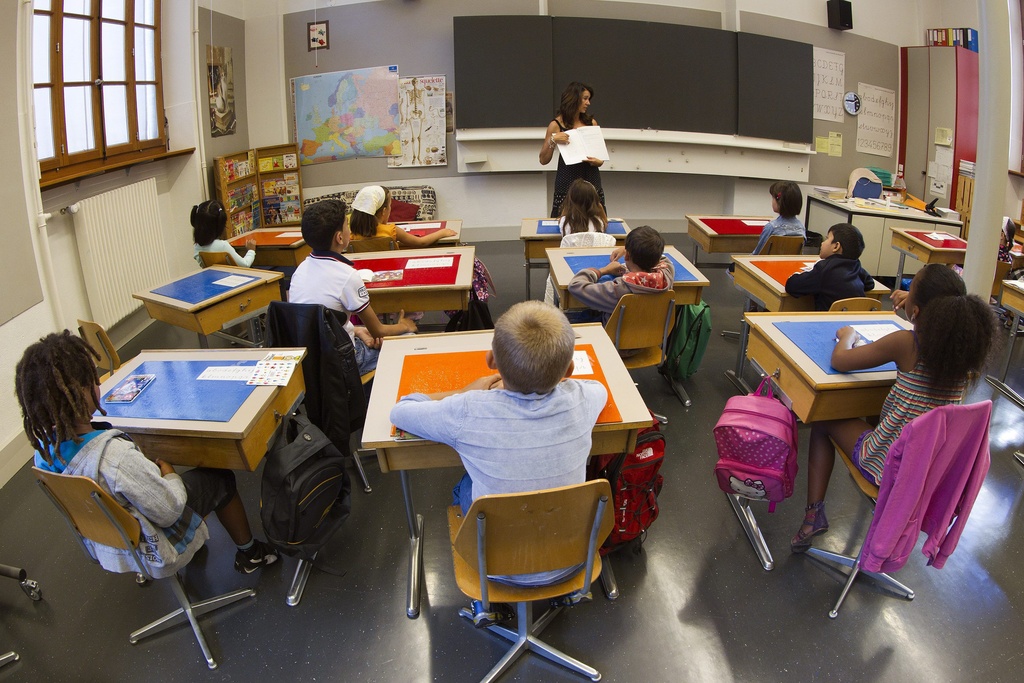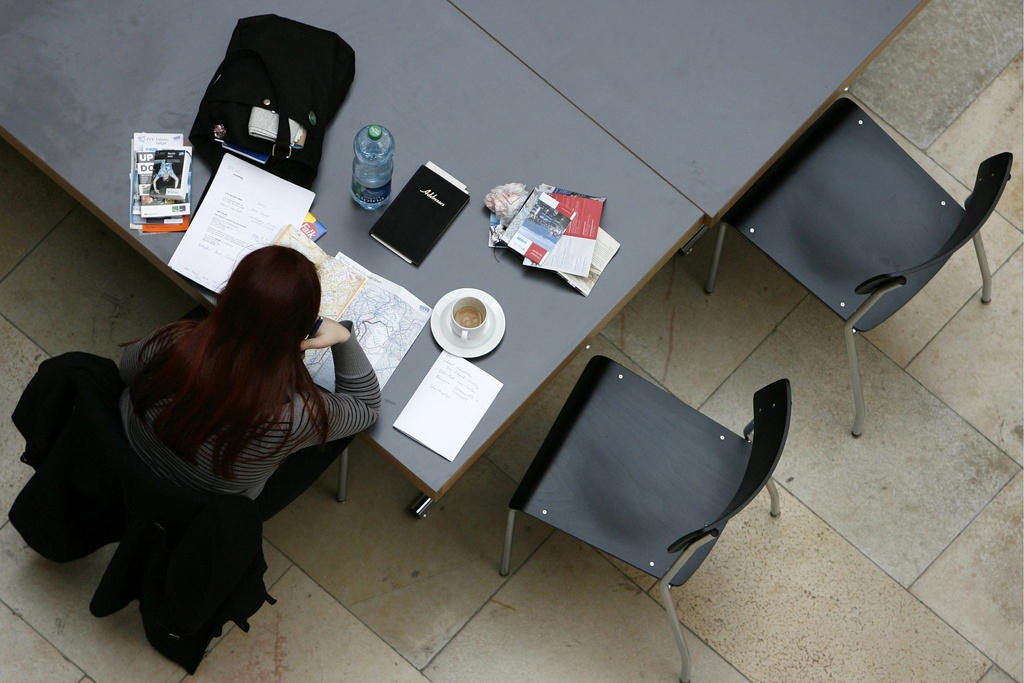Doctors say weak students get too much therapy

More than half of Swiss schoolchildren are undergoing some sort of therapy in an effort to solve learning problems.
That is far too many, according to the authors of a recently-published book on children with learning difficulties. They say that parents, teachers and doctors have unrealistic expectations of children.
Solothurn paediatrician Thomas Baumann and Zug paediatrician and youth psychiatrist Romedius Alber have written a 285-page book aimed at health professionals. Their goal is to reduce the numbers of children in therapy that might well be unnecessary.
Baumann told the NZZ am Sonntag newspaper parents today are too quick to rush their children into treatment when things aren’t going well at school.
“The child has learning difficulties? Then we need a diagnosis, some therapy – this has to be corrected immediately” – is how he summarises the current attitude.
Baumann said that when he opened his practice 30 years ago, hardly any children were in therapy for learning difficulties. Yet now it is more than half.
“Children haven’t changed. It’s just that more deviations from the norm are being diagnosed as pathological. Today we have totally incorrect conceptions of what is normal and what is not,” Baumann said.
Because of this, many parents see to it that their children receive remedial schooling or psychotherapy to counteract any perceived weaknesses.
A struggle for parents
Matthias Hugenschmidt, chairman of the canton Basel Country branch of Schule and Elternhaus (S&E), also has the feeling that more and more children are undergoing therapy for learning difficulties.
S&E is an organisation that looks out for the interests of families with school children. It has branches throughout German-speaking Switzerland.
Hugenschmidt told swissinfo.ch there are many possible reasons why therapy has become so common. He thinks the main reason is the growing expectations placed on children – not just by schools, but also by society in general.
“Parents are the filter for these various demands, but I think a lot of parents struggle to determine what’s truly necessary for their child’s development and which targets must be met to ensure a successful future,” said the father of four.
Hugenschmidt expressed concern about the wellbeing of children as a result of any unreasonable expectations.
“Whether they stem from teachers or parents, excessive demands can take a toll on children. Children are the weakest link in this three-way relationship, and might require medical attention as a result of the pressure,” he said.
He finds that, in general, “help is needed if the demands on children have a negative effect on their quality of life. For example, panic attacks, sleep disorders and behavioural problems require professional help”.
Wrong diagnosis
According to doctors Baumann and Alber, it is not uncommon for children to be misdiagnosed with Attention Deficit/Hyperactivity Disorder (ADHD). A teacher filling out a questionnaire might find one in three boys too fidgety or unfocused, but such questionnaires are always very subjective, said Baumann.
Alber said that in his experience, only about a third of those children might have ADHD; the others are inattentive for completely different reasons.
“For example, children of immigrants might understand too little of what is being said during a lesson, get bored and then become restless – but that has nothing to do with ADHD,” Alber pointed out.
Accentuate the positive
Baumann and Alber say that the fundamental problem is the sheer amount of psychological and aptitude testing that children have to undergo today. They argue that there is too much focus on detecting flaws, and too little focus on children’s strengths.
“It used to be that people were more relaxed. There were simply smarter and dumber children… people had faith that those who weren’t good in a subject would have a chance at a decent job later,” Alber told NZZ am Sonntag.
While some extra help can certainly be beneficial, Baumann said that every diagnosis has a consequence.
“Therapies stigmatise. Children want to be normal, and they are not if they have to go to speech therapy every Wednesday afternoon rather than play football,” Baumann said.
Instead, the doctor-author team recommends that parents send their children to therapists that concentrate on boosting strengths rather than repairing defects.
“Children are usually happy to go to these therapists… these are also the ones who do more good than harm,” Alber said.
Schooling in Switzerland is a responsibility devolved to the cantons, meaning there are 26 different education systems in the country. The cantons are currently trying to harmonise their practices.
Every child in Switzerland must go to school through grade nine, after which students are channeled into apprenticeships, specialised programmes or university tracks.
Primary school begins at age six. At the end of the primary level, a child must continue on to lower secondary schooling, where they are divided up based on performance, teacher recommendations and perhaps a test. Testing, behaviour, and work attitudes are used to determine whether a child continues to the next grade level.
At this level students are being groomed for vocational education and apprenticeships or for continuing education at an upper secondary school.
At the age of 16, pupils move to Secondary II level, which generally lasts three to four years. Almost all young Swiss go to some kind of Secondary II school. More than two thirds are streamed into vocational training. This means the trainee spends most of his or her time working for an approved employer but attends a vocational school for one or two days a week.

In compliance with the JTI standards
More: SWI swissinfo.ch certified by the Journalism Trust Initiative












You can find an overview of ongoing debates with our journalists here . Please join us!
If you want to start a conversation about a topic raised in this article or want to report factual errors, email us at english@swissinfo.ch.